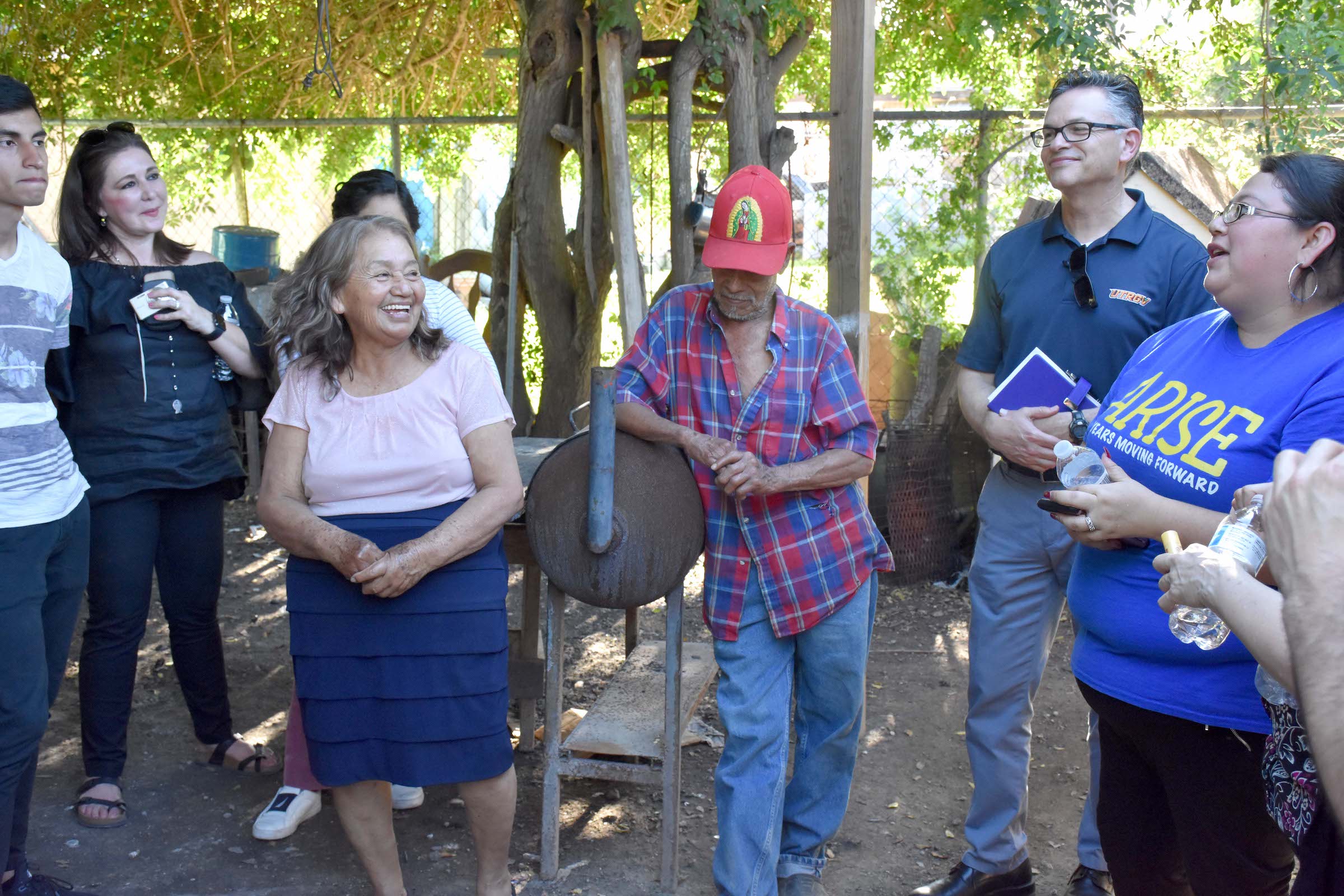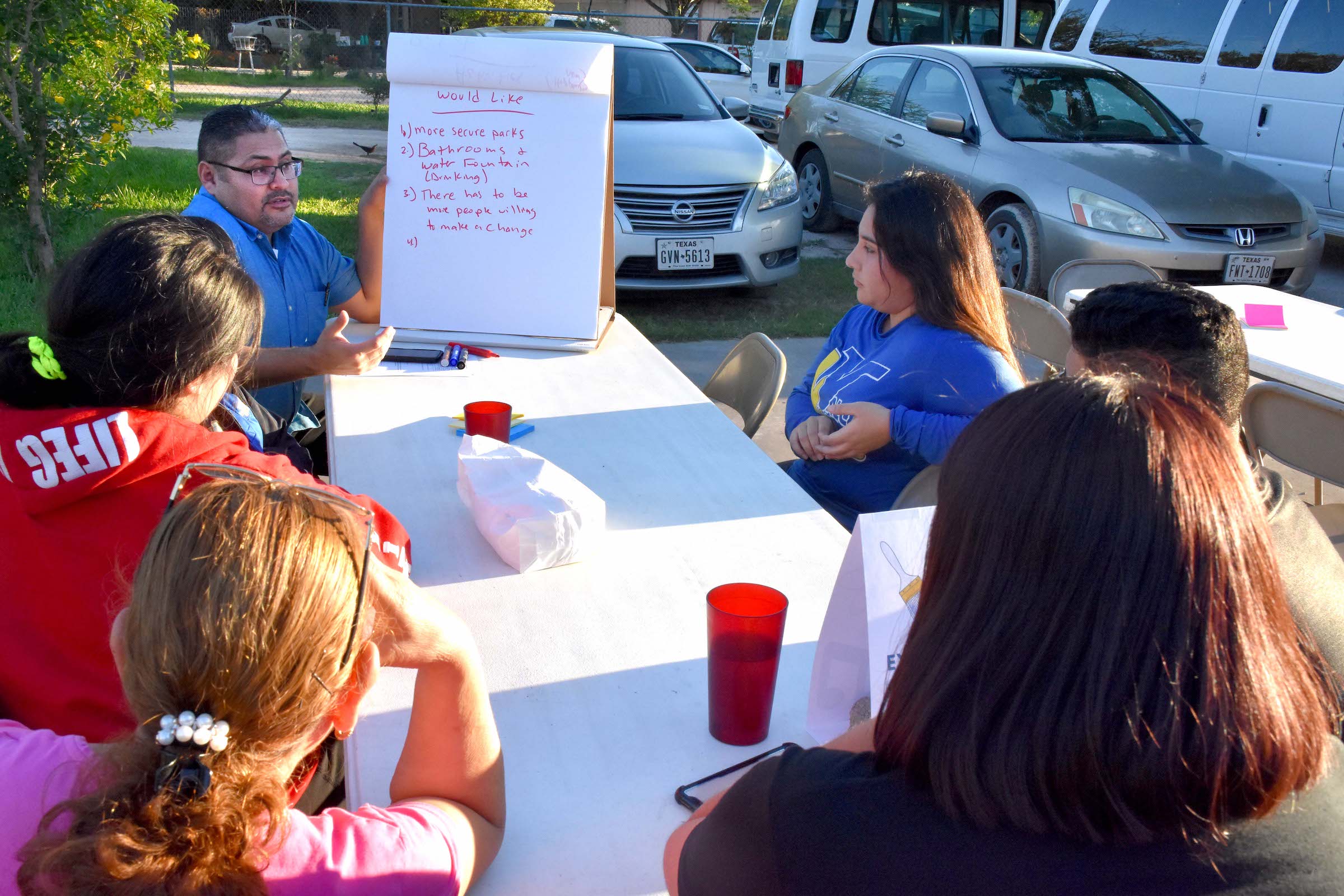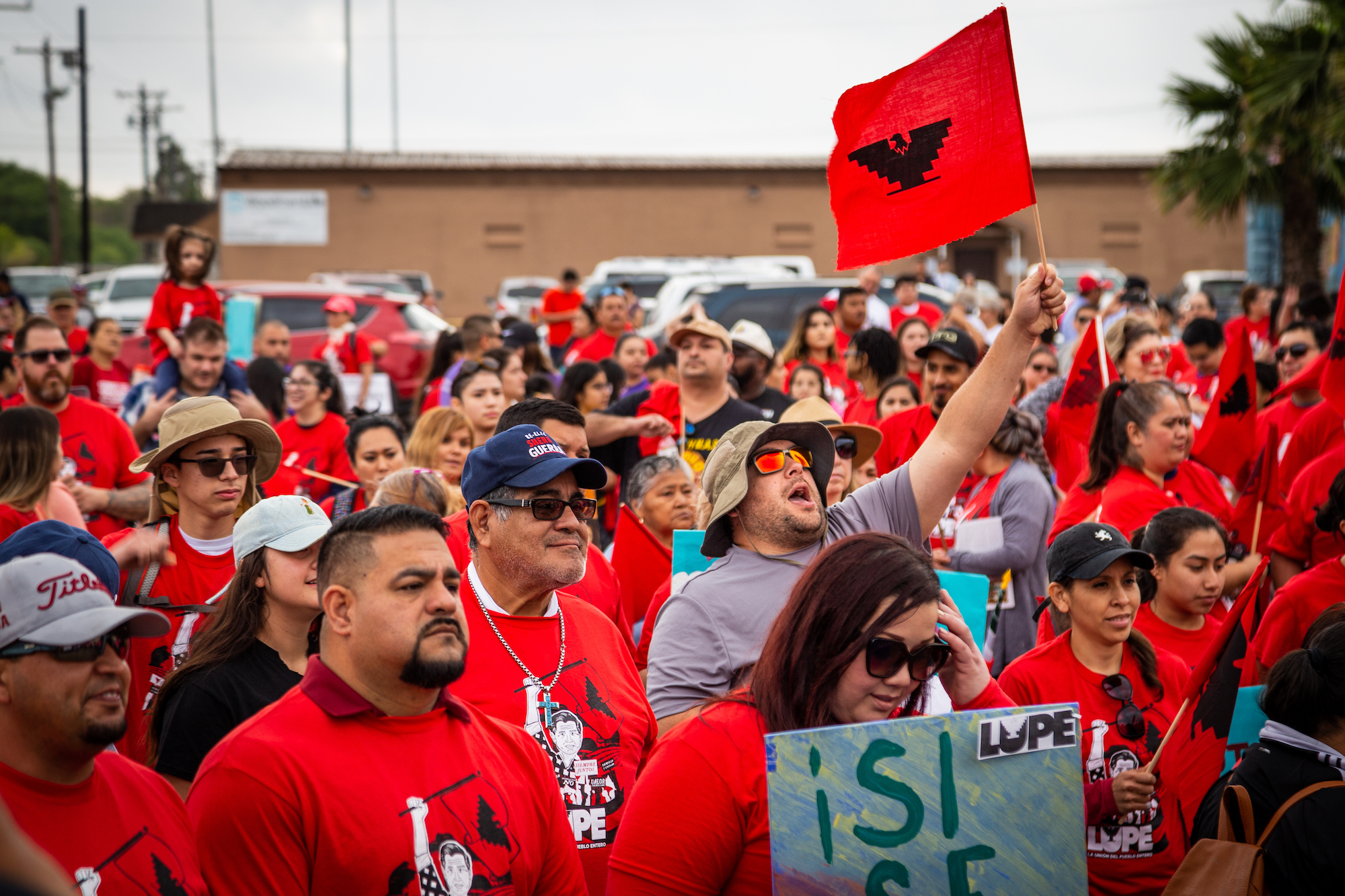Colonia residents work hard to make their neighborhoods places where their families can thrive. We guide them by providing leadership development and strategic direction.

We are fighting for communities where the resources we pitch in together go to the services we really need. A future where all neighborhoods have streetlights, flooding protection, quality homes, and broadband internet access.
The term “colonia” is used to describe rural, unincorporated subdivisions along the Texas-Mexico border. Colonias are characterized by sub-standard housing, inadequate plumbing and sewage disposal systems, and inadequate access to clean water. They are highly concentrated poverty pockets that are physically and legally isolated from neighboring cities. LUPE offices are located through satellite structures in key colonia areas so our impact is broad.
For many years, disinterested elected officials dismissed colonia residents. They looked the other way while shady developers proliferated unincorporated subdivisions with little to no regulations.
But colonia residents have never given up their dignity. And organizers and advocates have tirelessly organized alongside them to demand the most basic infrastructure.
LUPE has instilled hope and pride among the residents of colonias and in the Rio Grande Valley. House meeting after house meeting, campaign after campaign, LUPE has organized a membership base of over 6,000 members, 1,000 active leaders and 50+ Colonia Committees. This has created a tremendous list of accomplishments.

JOin us!

